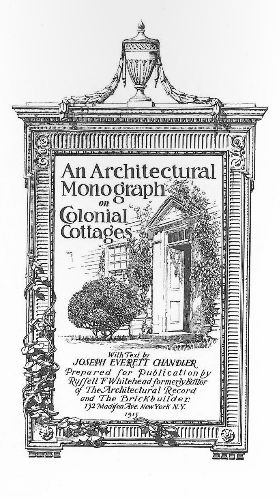
From the earliest interiors of colonial houses, which were almost medieval in nature, to the more refined details of subsequent periods throughout history, American interiors have one thing in common: woodwork rich in character, lending a sense of time and place. Volume XI, Issue II of the historic White Pine Architectural Monographs explores the evolution of interior woodwork in New England, and how it related to furnishings and other elements of the home.

“Every joiner, cabinet-maker, housewright, carpenter, or carpenter-builder of the 18th century worked in the style of the time freely interpreted,” writes author Edwin J. Hipkiss. “All moulded work from the cornice of a high chest to the cornice of a mansion was cut by hand with planes formed to make the curved elements of this simple architecture of classical origin.”
“In the woodwork of both the 17th and the 18th centuries the element of craftsmanship is important. The work of intelligent men, proud of a manual skill passed on from master to apprentice or from father to son, produced an ever fresh handling of well-known forms that were acceptable to several generations.”
While some modern architectural styles of the 21st century have done away with detailed woodwork in favor of cleaner lines, there’s still an appreciation for such craftsmanship to this day, and contemporary woodworkers strive to preserve these arts. This volume of the White Pine Monographs goes into detail about the wooden elements that could be found in the homes of various time periods, with lots of photos and architectural drawings.





